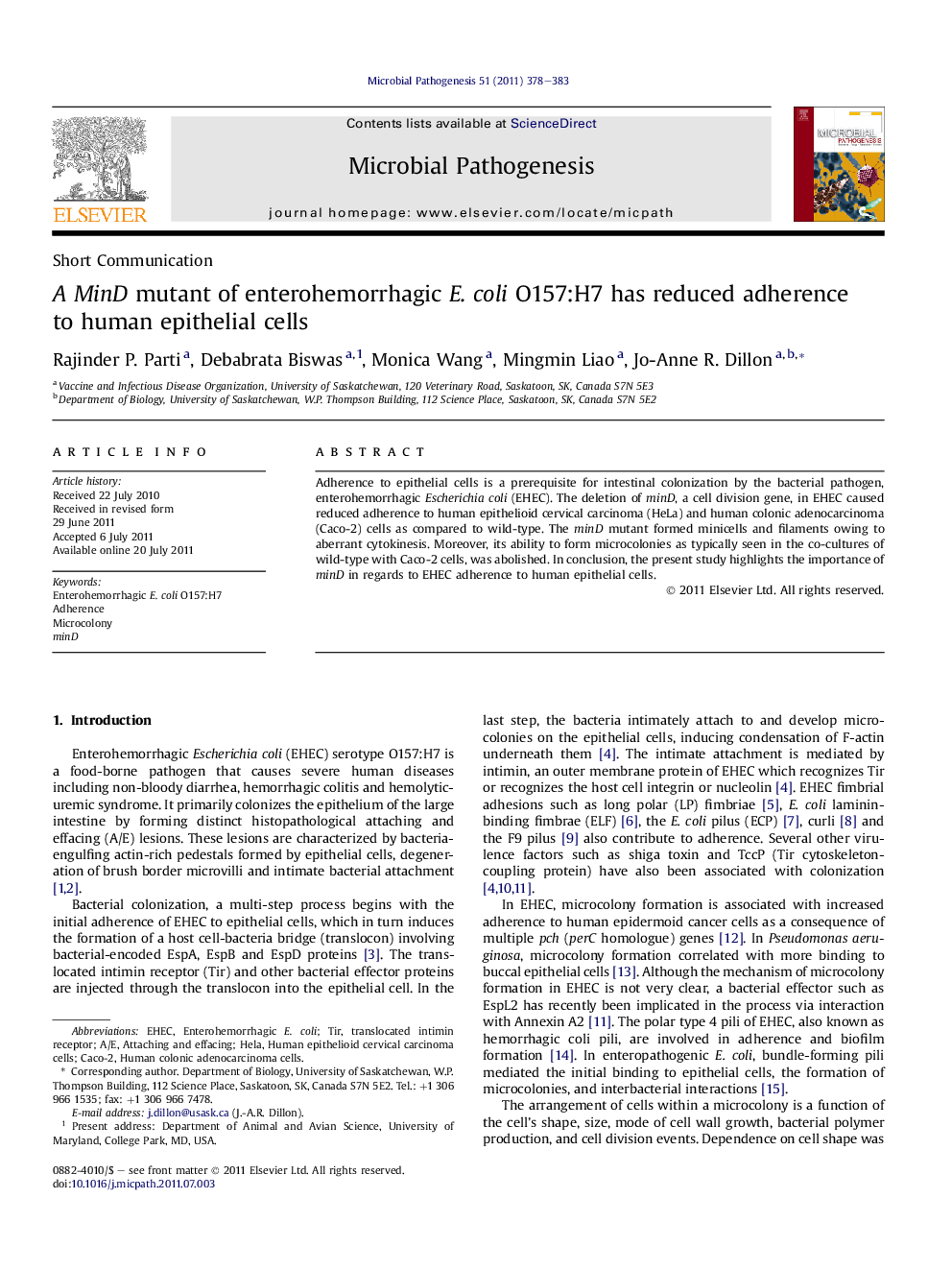| Article ID | Journal | Published Year | Pages | File Type |
|---|---|---|---|---|
| 6136431 | Microbial Pathogenesis | 2011 | 6 Pages |
Adherence to epithelial cells is a prerequisite for intestinal colonization by the bacterial pathogen, enterohemorrhagic Escherichia coli (EHEC). The deletion of minD, a cell division gene, in EHEC caused reduced adherence to human epithelioid cervical carcinoma (HeLa) and human colonic adenocarcinoma (Caco-2) cells as compared to wild-type. The minD mutant formed minicells and filaments owing to aberrant cytokinesis. Moreover, its ability to form microcolonies as typically seen in the co-cultures of wild-type with Caco-2 cells, was abolished. In conclusion, the present study highlights the importance of minD in regards to EHEC adherence to human epithelial cells.
âºminD, a cytokinesis gene, is important in adherence of EHEC to human epithelial cells. âºminD mutant of EHEC is defective in microcolony formation. âºMutation in minD does not affect shiga toxin production.
